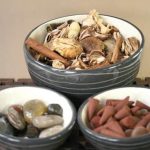Aromatherapy is a practice that has gained increasing popularity in recent years, with many claiming its effectiveness in treating various ailments and promoting overall well-being. However, there is much debate surrounding the scientific validity of aromatherapy, leading to questions about whether it is simply pseudoscience. In this article, we will delve into the world of aromatherapy to understand its origins, the role of essential oils, and the scientific evidence behind its claims.
Aromatherapy can be defined as a holistic healing treatment that uses natural plant extracts, known as essential oils, to promote physical and psychological well-being. These essential oils are often used in conjunction with massage therapy or as part of a diffuser to spread their aroma throughout a space. The practice is based on the belief that these aromatic compounds can have therapeutic effects when inhaled or absorbed through the skin.
As we explore aromatherapy further, it is important to understand the science behind this practice and distinguish it from pseudoscientific claims. By examining its historical origins and cultural significance, we can better grasp how aromatherapy has evolved over time and the role it plays in various societies. Additionally, debunking any misleading or unsubstantiated claims will help separate fact from fiction when it comes to this controversial topic.
Understanding the Science Behind Aromatherapy
Aromatherapy is a form of alternative medicine that uses plant extracts, known as essential oils, to promote physical and psychological well-being. The practice involves inhaling the aroma of these essential oils or applying them topically to the skin. Proponents of aromatherapy claim that it can have a variety of benefits, such as reducing anxiety, improving sleep, and relieving pain. However, skeptics argue that aromatherapy is a pseudoscience, lacking empirical evidence to support its claims.
One of the key reasons why aromatherapy is considered pseudoscience is its reliance on anecdotal evidence rather than rigorous scientific research. Many of the purported benefits of aromatherapy are based on personal testimonials and subjective experiences, rather than controlled clinical trials or peer-reviewed studies. This lack of empirical evidence raises questions about the validity and credibility of aromatherapy as a legitimate medical practice.
Another issue that contributes to the pseudoscientific nature of aromatherapy is the lack of standardized regulations and quality control in the production and use of essential oils. With no set guidelines for sourcing, extracting, and using essential oils, there is a significant potential for variation in purity, potency, and safety. This variability undermines the reliability and consistency of aromatherapy as a therapeutic modality.
Furthermore, many critics argue that the mechanisms by which aromatherapy is purported to work lack scientific plausibility. While some proponents claim that essential oils exert their effects through interactions with the limbic system in the brain or through absorption into the bloodstream via the skin or lungs, there is limited concrete evidence to support these claims.
Without a clear understanding of how essential oils produce their supposed therapeutic effects, it becomes challenging to substantiate the legitimacy of aromatherapy from a scientific standpoint.
Historical Origins of Aromatherapy and Its Cultural Significance
Aromatherapy has a rich historical background, dating back to ancient civilizations such as the Egyptians, Greeks, and Romans. These cultures used aromatic plants and essential oils for various purposes, including religious ceremonies, medicinal treatments, and personal care. The use of aromatherapy was deeply intertwined with cultural beliefs and practices, highlighting its significance in ancient societies.
Throughout history, aromatherapy has been revered for its therapeutic and spiritual benefits. Ancient physicians and healers recognized the powerful effects of essential oils on the mind and body, using them to alleviate symptoms of illnesses and promote overall well-being. The cultural significance of aromatherapy is evident in the intricate rituals and traditions surrounding its practice in different regions of the world.
- Aromatherapy in Ancient Egypt
- Aromatherapy in Ancient Greece
- Aromatherapy in Ancient Rome
Despite its long-standing cultural importance, aromatherapy has often been labeled as pseudoscience due to its mystical associations and lack of concrete scientific evidence. Critics argue that the claims made about the healing properties of essential oils are not backed by rigorous scientific research. However, proponents of aromatherapy assert that while certain aspects may be rooted in tradition and spirituality, there is growing scientific support for the therapeutic benefits of essential oils.
The Role of Essential Oils in Aromatherapy
The use of essential oils is a fundamental aspect of aromatherapy, as these natural extracts are believed to possess various therapeutic properties. Essential oils are derived from different parts of plants, including flowers, leaves, stems, and roots, through processes such as distillation and cold pressing. Each essential oil is known for its distinct aroma and purported healing effects.
Essential Oils and Aromatherapy
In aromatherapy, essential oils are typically inhaled or applied to the skin after being diluted with a carrier oil. Proponents of aromatherapy assert that the inhalation of these plant-based compounds can positively impact mood, alleviate stress and anxiety, improve sleep quality, and even provide relief from certain physical ailments. The practice also involves using essential oils in massages or adding them to bathwater.
The Controversy Surrounding Essential Oils
Despite the widespread use of essential oils in aromatherapy, there has been ongoing controversy regarding the scientific basis for their purported benefits. Critics argue that the evidence supporting the therapeutic claims associated with essential oils is often anecdotal or lacks rigorous scientific validation. This raises questions about how much of aromatherapy is driven by pseudoscience rather than empirical evidence.
Evidence-Based Research on Essential Oils
Scientific studies examining the effects of essential oils in aromatherapy have yielded mixed results. While some research supports the idea that certain compounds found in essential oils may have potential health benefits when used appropriately, other studies have failed to demonstrate significant effects beyond a placebo effect. As a result, the role of essential oils in aromatherapy continues to be a subject of debate within the scientific community.
Overall, while many individuals find value in incorporating essential oils into their wellness routines, it is important to approach their use with an understanding of both their cultural significance and empirical evidence supporting their purported benefits. This balance between tradition and science underscores the complex nature of aromatherapy as a holistic practice.
Debunking Pseudoscientific Claims in Aromatherapy
Aromatherapy is often associated with pseudoscientific claims that may mislead people into believing in its effectiveness without substantial evidence. This section will delve into the common misconceptions and debunk pseudoscientific claims in aromatherapy.
Understanding Pseudoscience in Aromatherapy
Pseudoscience refers to practices or beliefs that are claimed to be scientific but lack empirical evidence and cannot be tested through scientific methods. In the context of aromatherapy, there are various claims that suggest essential oils can cure serious medical conditions, such as cancer, or provide miraculous healing properties without credible scientific support. It is important to critically examine these claims to separate fact from fiction.
The Importance of Evidence-Based Practices
One of the key ways to debunk pseudoscientific claims in aromatherapy is by emphasizing the importance of evidence-based practices. Scientific research and clinical studies play a crucial role in determining the effectiveness of aromatherapy in treating certain health issues. By relying on credible evidence, individuals can make informed decisions about incorporating aromatherapy into their wellness routines.
The Role of Regulation and Transparency
Another aspect of debunking pseudoscientific claims in aromatherapy involves highlighting the necessity of regulation and transparency within the industry. It is crucial for consumers to have access to accurate information about the quality, safety, and efficacy of essential oils used in aromatherapy. Additionally, promoting transparency regarding the limitations and potential risks associated with aromatherapy can help individuals make well-informed choices about their holistic health practices.
Scientific Studies and Research on Aromatherapy
Aromatherapy has long been perceived as a form of alternative medicine, but the question remains: how is aromatherapy pseudoscience? While many people tout the benefits of aromatherapy for various health and wellness concerns, there is limited scientific evidence to support these claims. The practice of using essential oils for therapeutic purposes dates back centuries, but in today’s modern world, it is crucial to distinguish between anecdotal evidence and scientifically proven results.
Scientific studies and research on aromatherapy have yielded mixed findings. While some studies have shown positive effects of essential oils on mood and relaxation, there is a lack of consistent and significant evidence to support the wide range of health claims associated with aromatherapy.
One major challenge in conducting research on aromatherapy is the difficulty in measuring its effects objectively. Many of the reported benefits are based on self-reported feelings and experiences, making it tricky to separate placebo effects from legitimate physiological responses.
In recent years, there has been a growing interest in conducting rigorous scientific studies on aromatherapy to better understand its potential benefits and limitations. Researchers are exploring various aspects of aromatherapy, including its impact on mental health, pain management, sleep quality, and more.
However, much work still needs to be done to establish a solid foundation of evidence-based knowledge about the efficacy of aromatherapy. As such, while aromatherapy may hold promise as a complementary therapy for certain conditions, it is essential to approach it with a critical mindset and an awareness of the current limitations in scientific understanding.
| Science Behind Arometheraphy Research | Current Limitations |
|---|---|
| Limited empirical evidence supporting wide range of health claims; | Dfficulty in measuring effect objectively leads evaluations to subjective determination; |
| Rigorous study needed; | Requirement for further study in different areas including mental help nad pain management; |
Ethical Considerations in Aromatherapy Practices
When it comes to the practice of aromatherapy, ethical considerations play a crucial role in ensuring the safety and well-being of individuals seeking its therapeutic benefits. One of the key ethical considerations in aromatherapy is the issue of misrepresentation and false claims.
Many proponents of aromatherapy make unsubstantiated claims about the health benefits of essential oils, often without scientific evidence to support their assertions. This raises the question of how is aromatherapy pseudoscience and whether practitioners are being transparent and honest about the limitations and potential risks associated with this alternative therapy.
Another important ethical consideration in aromatherapy practices is informed consent. Practitioners have a responsibility to provide accurate information to clients about the potential benefits and risks of using essential oils for therapeutic purposes.
Clients should be made aware of any possible adverse effects or contraindications, as well as the lack of conclusive scientific evidence supporting certain aromatherapy treatments. Informed consent empowers individuals to make educated decisions about their health and well-being, ensuring that they are fully aware of what to expect from aromatherapy treatment.
Furthermore, there are ethical implications related to the sourcing and production of essential oils used in aromatherapy. Sustainable harvesting practices, fair trade principles, and environmental impact are all important factors that should be taken into consideration when choosing essential oil suppliers.
Ethical sourcing ensures that no harm is done to the environment or local communities involved in producing these natural products. By upholding ethical standards in sourcing essential oils, practitioners contribute to promoting social responsibility and environmental stewardship within the aromatherapy industry.
| Ethical Considerations | Importance |
|---|---|
| Misrepresentation and False Claims | Ensuring transparency and honesty in practice |
| Informed Consent | Empowering clients to make educated decisions |
| Ethical Sourcing | Promoting social responsibility and environmental stewardship |
Conclusion
In conclusion, while aromatherapy has gained popularity and cultural significance over the years, it is important to recognize that there are pseudoscientific claims surrounding its practice. The use of essential oils and their potential benefits should be approached with a critical mindset, separating fact from fiction. As explored in this article, the science behind aromatherapy is based on the principles of using aromatic plant extracts for holistic well-being, but many extravagant claims made by some practitioners lack scientific backing.
Debunking pseudoscientific claims in aromatherapy involves understanding the limitations and potential risks associated with relying solely on essential oils for treating medical conditions. It is crucial to acknowledge that while aromatherapy may offer some benefits such as stress relief and relaxation, there is limited scientific evidence to support its effectiveness in treating serious health issues. Therefore, approaching aromatherapy with caution and skepticism is necessary to avoid falling into the trap of pseudoscience.
Moving forward, it is important for consumers and practitioners alike to remain informed about the scientific studies and research on aromatherapy. By staying up to date with evidence-based information, individuals can make informed decisions about their use of essential oils and their potential impact on well-being. Ultimately, separating fact from fiction in aromatherapy requires a balanced approach that considers both the historical origins and cultural significance of this practice alongside scientific evidence.
Frequently Asked Questions
Is Aromatherapy a Placebo Effect?
Aromatherapy is not just a placebo effect. While some people may experience benefits due to the power of suggestion, there is scientific evidence to support the idea that certain aromas can have a real impact on mood and well-being.
What Is the Science Behind Aroma?
The science behind aroma involves the olfactory system, which is connected to the brain’s limbic system – the area responsible for emotions, memories, and arousal. When we inhale essential oils, they can stimulate these areas and produce physiological and psychological effects.
What Is the Research Theory and Practice of Aromatherapy?
Research on aromatherapy encompasses various aspects such as identifying the chemical components of essential oils, studying their effects on the body and mind, and exploring their potential therapeutic applications. In practice, aromatherapists use this research to create tailored blends for their clients based on specific needs and preferences.

Are you looking for a natural way to improve your health and wellbeing?
If so, aromatherapy may be the answer for you.



